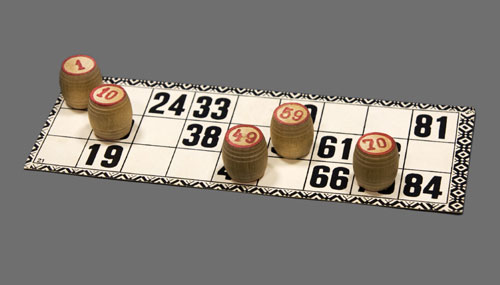
Bingo in Latin America and Around the World
29 April, 2021Bingo is an archetypal British game, but it has been readily adopted by nations all over the world who enjoy playing it, too. However, it’s not always played in the 90-ball format that British people are used to, and nations in different parts of the world have adapted the game to make it more suitable for their citizens. Let’s take a look at how bingo is enjoyed differently around the world and see if the simple game is as popular abroad as it is within the UK where there are over 50 different bingo sites.
Bingo as we know it originated in Italy
Depending on who you speak to, you might hear that bingo actually originated in Italy, not in the UK, as many people think. The game that people are referring to when they say this is Gioco del Lotto, which started sometime in the 16th century and is the oldest form of bingo known to have existed! Today, you can find bingo halls in cities across Italy, as the game is enjoyed in various formats up and down the country.
Bingo in Latin America
Noawadays many countries in Latin American can play bingo online through the wealth of online sites. Countries like Chile, Colombia, Mexico and more have access to operators like Codere who offer thousands of different games, and their turnover figures in the hundreds of thousands millions show that demand is there.
Brazil
Brazil offers players access to around 600 bingo halls and the Brazilian government regulates these bingo outlets, generating somewhere between $3 and $4 billion every year in taxes from doing so.
Germans have enjoyed bingo since the 19th century
Since 1880, bingo has been enjoyed widely in Germany. It was initially called ‘der Lottospiel’ and followed a similar format to the 90-ball version that is so popular in the UK. In Germany, bingo is not only used as a form of entertainment but also as an educational game and is used by teachers as a core part of the curriculum. As such, bingo in Germany is just as popular with young people as it is with their elderly relatives.
Romanians enjoy bingo nearly as much as British people
Believe it or not, Romania is the country that is ranked second for bingo popularity. The game exploded in popularity in the 1990s after the fall of the Ceausescu regime liberated the population. Bingo halls are extremely well attended across Romania, and there are even television channels dedicated to bingo that attract thousands of viewers every day.
Bingo was first introduced to the US in the 1920s
The first record of bingo being played in the US was at various carnivals during the 1920s. A version of the game was then copyrighted and sold during the following decades and has become extremely popular with American citizens in the years since. Like in Germany, bingo in America is commonly played as an educational game in schools, and it has also been used as an effective fundraising strategy by the Catholic church. The most notable difference between bingo in the UK and the US is that the latter plays a popular 75-ball version, as opposed to the 90-ball version widely enjoyed in the UK.
Online bingo has become extremely popular in Japan
In many parts of the world, bingo was first popular in brick-and-mortar venues before turning to an online version of the game as technology advanced. However, in Japan, it was the other way around, as online bingo was introduced after many of the gambling laws in the country were relaxed. Given the fact that it was somehow late to the bingo party, Japan has emerged as a global powerhouse in the online bingo market and is now considered as the second biggest market for the online version of the game.
Bingo is a truly global game
Contrary to popular belief, then, bingo is an extremely popular global game. This is perhaps due to the ease at which it is understood and the many varieties that are enjoyed by players in different parts of the world. With the increasing popularity of online bingo in recent years, we’re likely to see even more countries enter the online bingo market, and as such, bingo will be enjoyed by even more people all over the world.
Follow Sounds and Colours: Facebook / Twitter / Instagram / Mixcloud / Soundcloud / Bandcamp
Subscribe to the Sounds and Colours Newsletter for regular updates, news and competitions bringing the best of Latin American culture direct to your Inbox.

